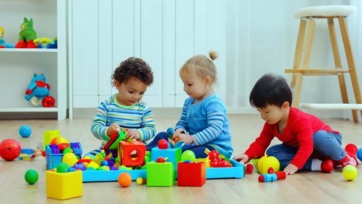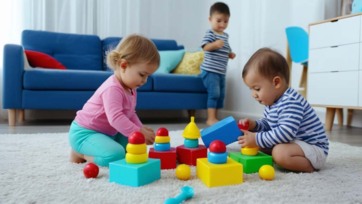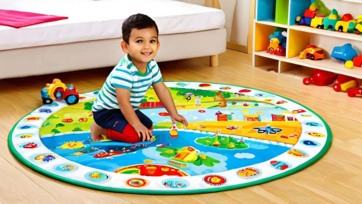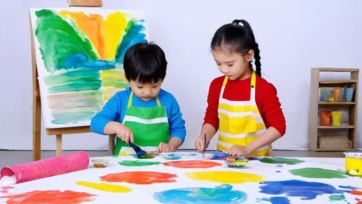The Importance of Learning in the Baby Stage
The earliest years of a child's life are crucial for laying the foundation for future development. Even as babies, children are constantly absorbing information from their environment, making the learning that takes place during this stage incredibly impactful. While it might seem like babies are just eating, sleeping, and playing, they are actually engaging in vital learning processes that shape their cognitive, emotional, and social development.
Building the Brain’s Foundation
During the baby stage, the brain is rapidly developing, forming connections that will serve as the basis for future learning. Every interaction, whether it's a smile, a sound, or a gentle touch, contributes to this growth. Simple activities like talking to your baby, reading books with bright pictures, or singing lullabies help stimulate brain development and build the neural pathways that support language, memory, and problem-solving skills.
Emotional Bonding and Security
Learning during infancy isn’t just about cognitive skills; it’s also about building emotional bonds and a sense of security. When parents and caregivers respond to a baby's needs with love and attention, they create a strong emotional foundation. This bond not only makes the baby feel safe and loved but also fosters trust, which is essential for healthy social and emotional development. Babies who feel secure are more likely to explore their surroundings, leading to more learning opportunities.
Sensory Exploration
Babies learn about the world primarily through their senses—seeing, hearing, touching, tasting, and smelling. Encouraging sensory exploration, such as letting your baby touch different textures or listen to various sounds, helps them understand their environment. These sensory experiences are the first steps in developing more complex skills like motor coordination and spatial awareness.
Language Development
The baby stage is also a critical time for language development. Even before they can speak, babies are listening and learning the sounds of their native language. Talking to your baby frequently, using expressive tones, and exposing them to a rich vocabulary through songs and stories will support their language skills. This early exposure sets the stage for more advanced language learning as they grow.
Encouraging Curiosity
Babies are naturally curious, and encouraging this curiosity can foster a lifelong love of learning. By providing a stimulating environment with safe objects to explore, you can help your baby develop their curiosity and problem-solving abilities. Simple activities like playing peek-a-boo, stacking blocks, or exploring new environments can spark interest and wonder in the world around them.
Conclusion
Learning in the baby stage is about much more than academics; it's about nurturing the whole child—emotionally, socially, and cognitively. By providing a loving, stimulating, and responsive environment, you can help your baby develop the skills and confidence they need for a lifetime of learning and growth. Remember, the time you invest in your baby's learning now will pay off in countless ways as they continue to grow and thrive.






